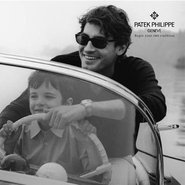- About
- Subscribe Now
- New York,
December 13, 2010

The two most important values that affluent consumers look for when deciding to buy from a luxury brand are quality and ethical behavior, according to a study by Unity Marketing.
Luxury brands are likely unsurprised that upscale shoppers find the quality of products and services important, as marketers center their sales strategies on delivering the best of the best. However, the level of importance placed on ethical, honest and lawful behavior in luxury brands might be surprising to some onlookers.
“Consumers want to do business with companies who are good business people and treat their employees and customers fairly,” she said. “The way a brand treats its customers is critically important in this day and age.
“You have to build a relationship of trust with consumers,” she said. “You can’t lie or deceive, and you have to deal ethically, honestly and lawfully.”
Unity’s study surveyed 1,364 affluent consumers with average incomes slightly less than $300,000 per year and average net wealth of $7.3 million. The study was conducted last month.
Values matter
Unity asked consumers how important it was that companies they bought from project certain values.
The value that most consumers cared about was quality of products and services.
Fifty-eight percent of respondents said that quality was extremely important, and the value indexed at 155, making it 55 percent more important to consumers than the average category.
Meanwhile, 55 percent of all respondents called ethics and honest very important to their decision to purchase.
Fair pricing for products and services was the third most important company value identified, garnering an index of 135 and “extremely important” rankings from 51 percent of participants.
Therefore, luxury brands need to make sure to justify the prices they demand through quality and service.
Forty percent of participants said it was extremely important that companies they buy from treat employees well.
Meanwhile, 34 percent labeled accountability and transparency as extremely important.
Environmental responsibility was only identified as extremely important by 30 percent of luxury consumers.
However, social and environmental issues will grow in importance as the youngest affluent consumers become bigger players in the luxury marketplace.
Luxury consumers 24-34 years old viewed these issues as more important than consumers ages 35-plus.
Upscale brands may need to place greater emphasis on environmental responsibility, community service and charitable giving programs as the demographics of the market continue to shift.
More focus on daily lives
The study also researched what was important to luxury consumers in their daily lives.
Twenty-seven percent of respondents said they most valued warm relationships with others. This was most common response.
Financial security was identified as most important by 18 percent of participants, followed by fun and enjoyment and life (16 percent), security (12 percent) and self-fulfillment (11 percent).
Only 3 percent of consumers said that “having enough money to buy nice things” was most important.
Ms. Danziger said that such measurements were too often discounted by marketers, arguing that luxury marketers could use such data to better tailor their products, advertising creative, in-store experience and even their overall positioning and brand strategy.
The consultant gave the example of Patek Philippe’s advertising campaign bearing the slogan:
“You never actually own a Patek Philippe. You merely look after it for the next generation.”
The campaign taps into the important role family plays in a consumer’s life as a way to create a bond.
Research into consumer values is vital for identifying which values to emphasize.
“I think [this research] is an important call for brands to really understand the full dimensions of their customers,” said Pam Danziger, president of Unity Marketing, Stevens, PA. “Interesting opportunities could arise in terms of product, branding, advertising and social media strategy.
“All kinds of new opportunities can arise if you really understand the consumer from who they are and what they value,” she said. “We’ve seen this counter-trend in communications.
“While everyone is focusing on online and Facebook, there is also this move back to more personal communications and back to basics and I think that has implications for what people might buy and marketing your products.”
Final Take
Peter Finocchiaro, editorial assistant at Luxury Daily, New York
Share your thoughts. Click here